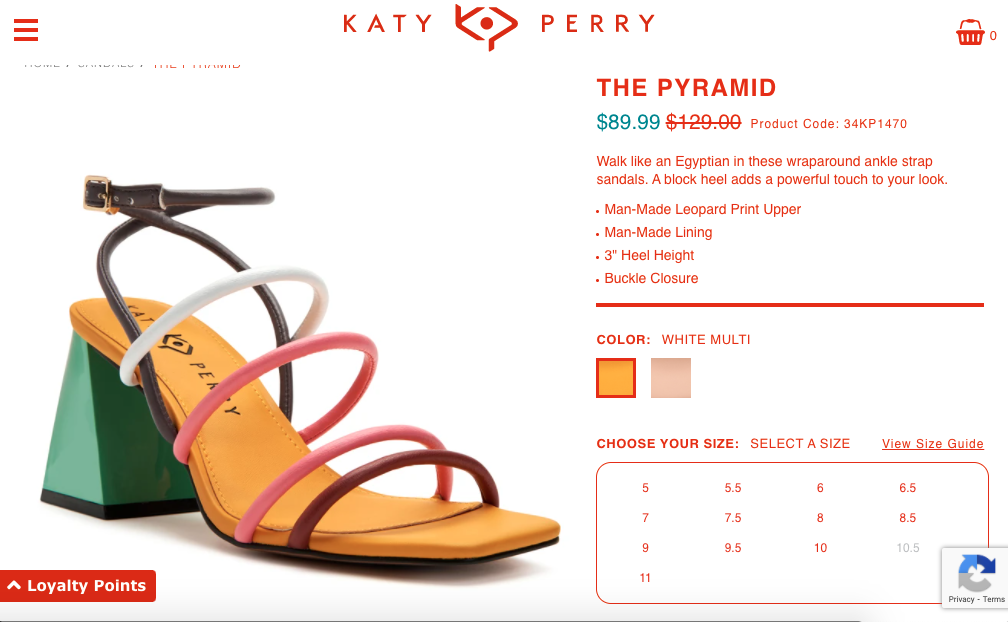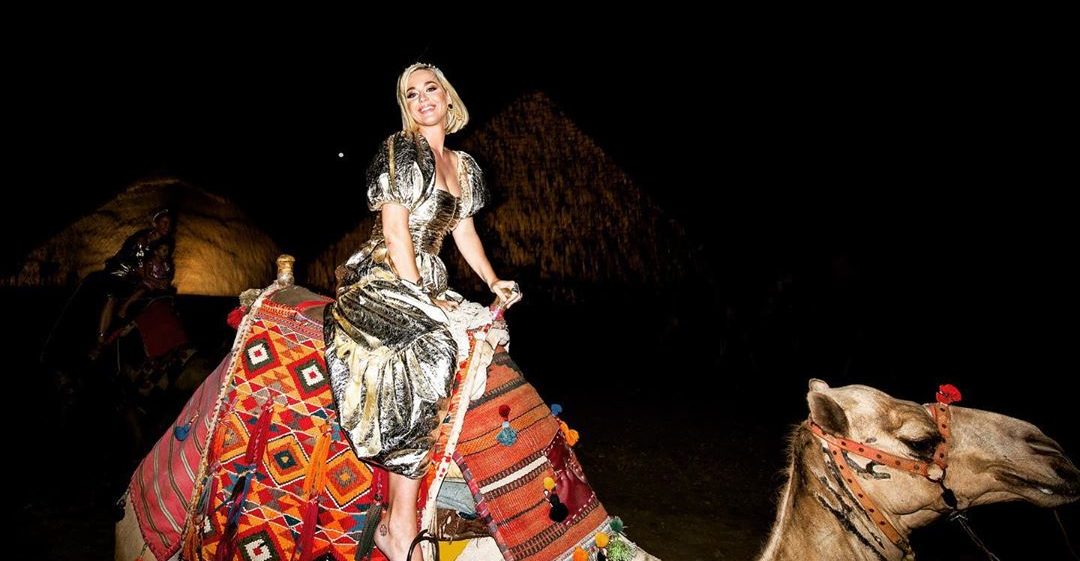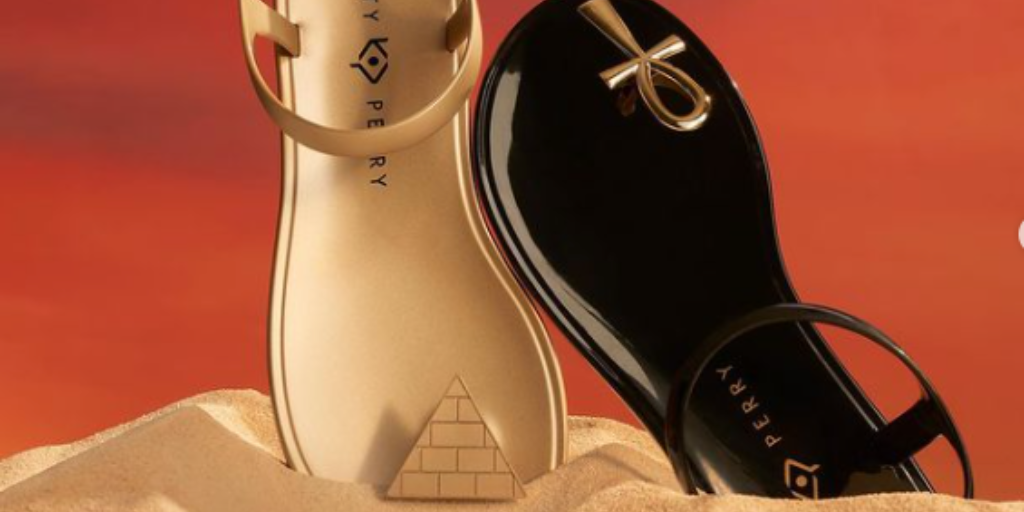American singer Katy Perry posted a photo of two sandals from her Egypt-inspired line at Katy Perry Collections on Instagram on 11 June. While many of the comments on the post are by Egyptians excited to see their country inspire a globally-acclaimed singer, others believe that this should be considered cultural appropriation due to Perry’s use of sacred ancient Egyptian (and religious) symbols on footwear.
The sandals posted on Instagram feature a pyramid as well as the key of life (also known as ankh). Other sandals from the line include The Pyramid, with the caption on the website reading: “Walk like an Egyptian in these wraparound ankle strap sandals.”

Cultural appropriation is defined as using an object of a culture (in many cases a non-dominant culture, such as the case of people of color or displaced individuals such as Native Americans) in a way that “does not respect their original meaning.”
The key of life is a hieroglyphic symbol for eternal life, as it symbolizes both the afterlife and mortal existence. It was later used by the Coptic Christians of Egypt in the 4th century as a symbol of faith to symbolize Christ’s belief in his sacrifice and resurrection, similarly to the modern-day cross.
Pyramids are also of significance in ancient Egypt, symbolizing the importance of the afterlife and representing a way to send the souls of departed pharaohs to the home of the gods.
For several years, debates have come up over what draws the line between cultural appropriation and inspiration, or how one can celebrate another’s culture without being offensive. One scholar believes one factor to consider is intent, which would be a blurry issue in Perry’s case since her products and videos are intended for self-promotion.
Perry has been transparent about the fact that her 2019 trip to Egypt was her inspiration for the designs, but it is arguable that the placement of these symbols – particularly the key of life, which is of religious significance – on footwear is a questionable choice since footwear can generally be considered offensive in Middle Eastern cultures. Throwing a shoe at someone, for example, is considered incredibly offensive, and pointing the sole of one’s foot (or shoe) at someone else is considered disrespectful.

Perry had posted a photo of another Egypt-inspired pair of sandals a few weeks prior, this time featuring a sparkling Eye of Horus. The caption reads: “Legend says the Eye of Horus represents well-being, healing, and protection. Who couldn’t use some protection from head to toe?”
View this post on Instagram
Horus was a celestial god in ancient Egypt, and the Eye of Horus is considered a sacred symbol that signifies “sacrifice, healing, regeneration, wholeness, and protection.” In museums, one can see it was carved in jewelry to offer wearers protection and health.
This is not the first time the singer has been criticized over her products. In 2019, two of her shoes were pulled from the shelves after she received backlash and was accused of using racist caricatures, particularly blackface makeup.
Perry was also on the receiving end of backlash after she released her Dark Horse music video in 2014. She was prompted to edit the video to remove a scene where she uses lightning to turn a man wearing an ‘Allah’ pendant into sand. Perry has also been accused of appropriating several other cultures, including the Chinese and Japanese cultures due to her choice of outfits at an awards ceremony.

Conversations about cultural appropriation have long revolved around other marginalized groups such as Native Americans, but has scarcely been brought up in the Middle East, save for rare occurrences such as when Louis Vuitton released a product “inspired by” the Palestinian scarf (keffiyeh) in June 2021.
Famous designers have also been known to get inspired by ancient Egypt, including Chanel and Dior.
This lack of conversation begs the question of whether there are in fact limited instances of cultural appropriation in the MENA region, or if they simply aren’t given as much attention as ones that occur in the west.
Subscribe to the Egyptian Streets’ weekly newsletter! Catch up on the latest news, arts & culture headlines, exclusive features and more stories that matter, delivered straight to your inbox by clicking here.







Comments (3)
[…] Source link […]
[…] Source link […]